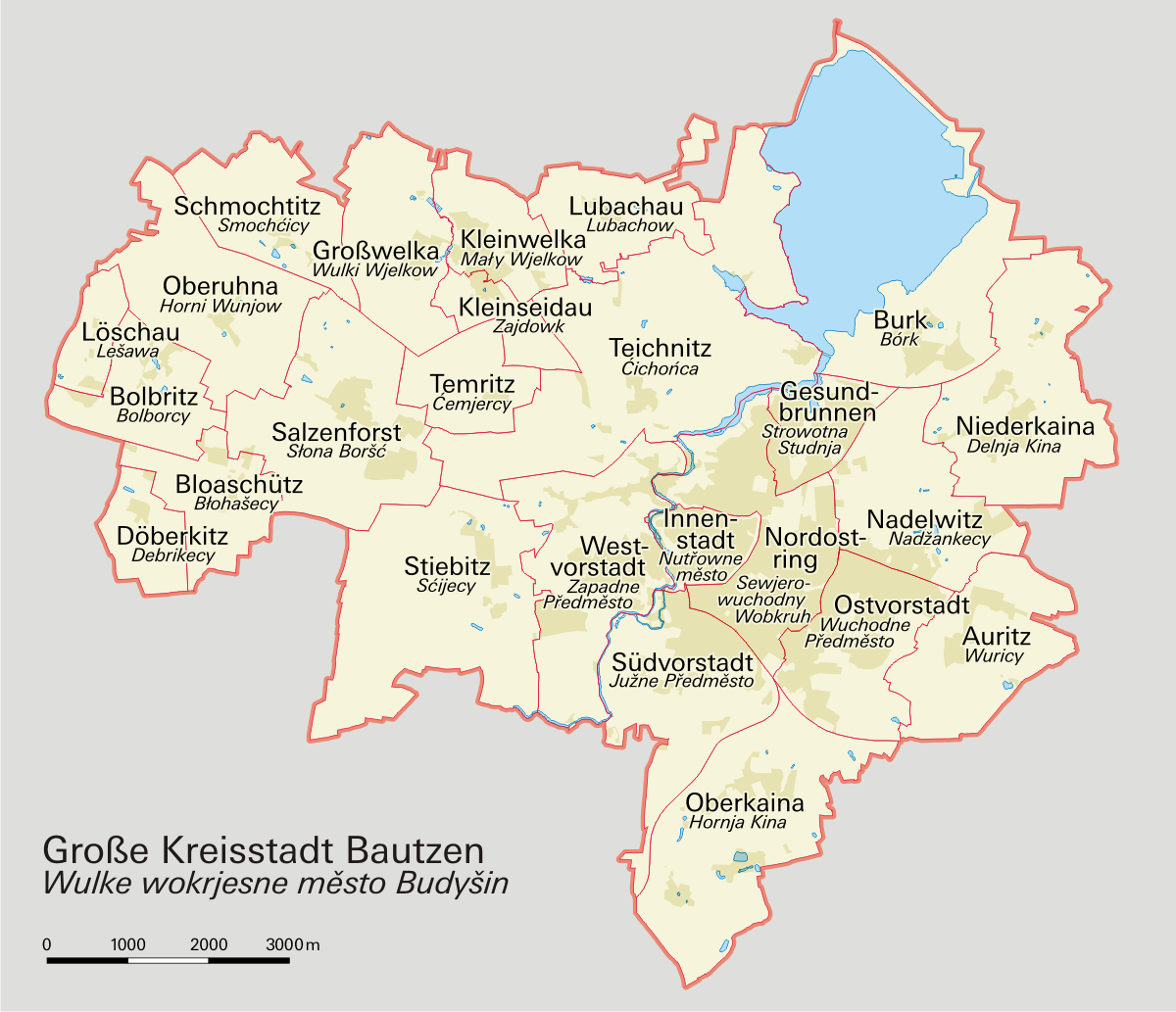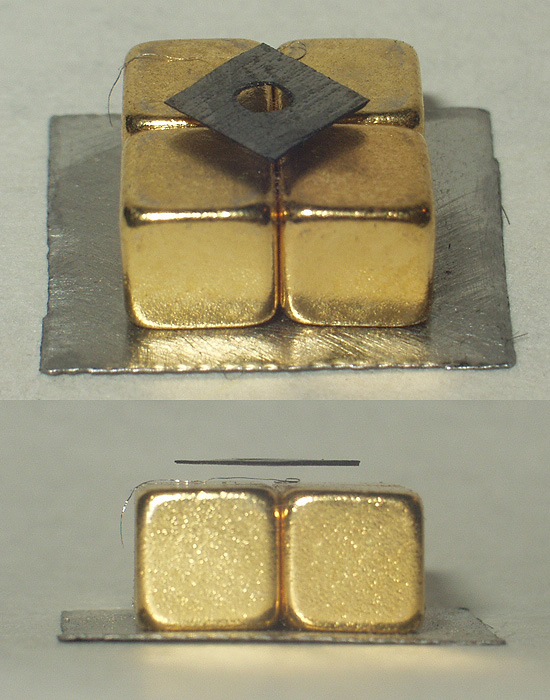|
Werner Braunbeck
Werner Braunbeck (German: ''Werner Braunbek''; 8 January 1901 – 9 February 1977) was a German physicist. He was born in Bautzen, the son of the Government Commissioner of City Planning Otto August Braunbek (1869–1929). Werner attended the University of Stuttgart, the University of Munich and the University of Berlin. In 1925 he received a doctorate in engineering and completed his habilitation in theoretical physics the following year at the University of Stuttgart, where he continued as a lecturer. In 1932 Braunbeck became Associate Professor at the University of Stuttgart, before replacing Alfred Landé in 1936 as Professor of theoretical physics at the University of Tübingen, and succeeding to the role of Professor in 1959. In 1961/62 he served as Dean of Mathematical and Natural Sciences of the University of Tübingen. In 1934 Braunbeck developed the Braunbek coil, a modified Helmholtz coil. In 1939, he disproved Earnshaw's theorem by showing that there are magnetic f ... [...More Info...] [...Related Items...] OR: [Wikipedia] [Google] [Baidu] |
Bautzen
Bautzen () or Budyšin () is a hill-top town in eastern Saxony, Germany, and the administrative centre of the district of Bautzen. It is located on the Spree river. In 2018 the town's population was 39,087. Until 1868, its German name was ''Budissin''. In 1945 the Battle of Bautzen was Hitler’s last victory against the Soviet Union during the Battle of Berlin . Bautzen is often regarded as the unofficial, but historical capital of Upper Lusatia. The town is also the most important cultural centre of the Sorbian minority, which constitutes about 10 percent of Bautzen's population. Asteroid '' 11580 Bautzen'' is named in honour of the city. Names Like other cities and places in Lusatia, Bautzen has several different names across languages. Its German name was also officially changed in 1868. As well as ''Bautzen'' (German) and ''Budyšin'' (Upper Sorbian), the town has had the following names: * German: ''Budissin'' (variants used from c. 11th century onwards; Saxon governme ... [...More Info...] [...Related Items...] OR: [Wikipedia] [Google] [Baidu] |
Diamagnetic
Diamagnetic materials are repelled by a magnetic field; an applied magnetic field creates an induced magnetic field in them in the opposite direction, causing a repulsive force. In contrast, paramagnetic and ferromagnetic materials are attracted by a magnetic field. Diamagnetism is a quantum mechanical effect that occurs in all materials; when it is the only contribution to the magnetism, the material is called diamagnetic. In paramagnetic and ferromagnetic substances, the weak diamagnetic force is overcome by the attractive force of magnetic dipoles in the material. The magnetic permeability of diamagnetic materials is less than the permeability of vacuum, ''μ''0. In most materials, diamagnetism is a weak effect which can be detected only by sensitive laboratory instruments, but a superconductor acts as a strong diamagnet because it repels a magnetic field entirely from its interior. Diamagnetism was first discovered when Anton Brugmans observed in 1778 that bismuth was repel ... [...More Info...] [...Related Items...] OR: [Wikipedia] [Google] [Baidu] |
University Of Stuttgart Alumni
A university () is an institution of higher (or tertiary) education and research which awards academic degrees in several academic disciplines. Universities typically offer both undergraduate and postgraduate programs. In the United States, the designation is reserved for colleges that have a graduate school. The word ''university'' is derived from the Latin ''universitas magistrorum et scholarium'', which roughly means "community of teachers and scholars". The first universities were created in Europe by Catholic Church monks. The University of Bologna (''Università di Bologna''), founded in 1088, is the first university in the sense of: *Being a high degree-awarding institute. *Having independence from the ecclesiastic schools, although conducted by both clergy and non-clergy. *Using the word ''universitas'' (which was coined at its foundation). *Issuing secular and non-secular degrees: grammar, rhetoric, logic, theology, canon law, notarial law.Hunt Janin: "The university ... [...More Info...] [...Related Items...] OR: [Wikipedia] [Google] [Baidu] |
Academic Staff Of The University Of Stuttgart
An academy (Attic Greek: Ἀκαδήμεια; Koine Greek Ἀκαδημία) is an institution of secondary or tertiary higher learning (and generally also research or honorary membership). The name traces back to Plato's school of philosophy, founded approximately 385 BC at Akademia, a sanctuary of Athena, the goddess of wisdom and skill, north of Athens, Greece. Etymology The word comes from the ''Academy'' in ancient Greece, which derives from the Athenian hero, ''Akademos''. Outside the city walls of Athens, the gymnasium was made famous by Plato as a center of learning. The sacred space, dedicated to the goddess of wisdom, Athena, had formerly been an olive grove, hence the expression "the groves of Academe". In these gardens, the philosopher Plato conversed with followers. Plato developed his sessions into a method of teaching philosophy and in 387 BC, established what is known today as the Old Academy. By extension, ''academia'' has come to mean the accumulation, dev ... [...More Info...] [...Related Items...] OR: [Wikipedia] [Google] [Baidu] |
Academic Staff Of The University Of Tübingen
An academy (Attic Greek: Ἀκαδήμεια; Koine Greek Ἀκαδημία) is an institution of secondary or tertiary higher learning (and generally also research or honorary membership). The name traces back to Plato's school of philosophy, founded approximately 385 BC at Akademia, a sanctuary of Athena, the goddess of wisdom and skill, north of Athens, Greece. Etymology The word comes from the ''Academy'' in ancient Greece, which derives from the Athenian hero, ''Akademos''. Outside the city walls of Athens, the gymnasium was made famous by Plato as a center of learning. The sacred space, dedicated to the goddess of wisdom, Athena, had formerly been an olive grove, hence the expression "the groves of Academe". In these gardens, the philosopher Plato conversed with followers. Plato developed his sessions into a method of teaching philosophy and in 387 BC, established what is known today as the Old Academy. By extension, ''academia'' has come to mean the accumulation, de ... [...More Info...] [...Related Items...] OR: [Wikipedia] [Google] [Baidu] |
1977 Deaths
Events January * January 8 – Three bombs explode in Moscow within 37 minutes, killing seven. The bombings are attributed to an Armenian separatist group. * January 10 – Mount Nyiragongo erupts in eastern Zaire (now the Democratic Republic of the Congo). * January 17 ** 49 marines from the and are killed as a result of a collision in Barcelona harbour, Spain. * January 18 ** Scientists identify a previously unknown bacterium as the cause of the mysterious Legionnaires' disease. ** Australia's worst railway disaster at Granville, a suburb of Sydney, leaves 83 people dead. ** SFR Yugoslavia Prime minister Džemal Bijedić, his wife and 6 others are killed in a plane crash in Bosnia and Herzegovina. * January 19 – An Ejército del Aire CASA C-207C Azor (registration T.7-15) plane crashes into the side of a mountain near Chiva, on approach to Valencia Airport in Spain, killing all 11 people on board. * January 20 – Jimmy Carter is sworn in as the 39th Preside ... [...More Info...] [...Related Items...] OR: [Wikipedia] [Google] [Baidu] |
1901 Births
Nineteen or 19 may refer to: * 19 (number), the natural number following 18 and preceding 20 * one of the years 19 BC, AD 19, 1919, 2019 Films * 19 (film), ''19'' (film), a 2001 Japanese film * Nineteen (film), ''Nineteen'' (film), a 1987 science fiction film Music * 19 (band), a Japanese pop music duo Albums * 19 (Adele album), ''19'' (Adele album), 2008 * ''19'', a 2003 album by Alsou * ''19'', a 2006 album by Evan Yo * ''19'', a 2018 album by MHD (rapper), MHD * ''19'', one half of the double album ''63/19'' by Kool A.D. * ''Number Nineteen'', a 1971 album by American jazz pianist Mal Waldron * XIX (EP), ''XIX'' (EP), a 2019 EP by 1the9 Songs * 19 (song), "19" (song), a 1985 song by British musician Paul Hardcastle. * "Nineteen", a song by Bad4Good from the 1992 album ''Refugee (Bad4Good album), Refugee'' * "Nineteen", a song by Karma to Burn from the 2001 album ''Almost Heathen''. * Nineteen (song), "Nineteen" (song), a 2007 song by American singer Billy Ray Cyrus ... [...More Info...] [...Related Items...] OR: [Wikipedia] [Google] [Baidu] |
Electromagnetic Suspension
Electromagnetic suspension (EMS) is the magnetic levitation of an object achieved by constantly altering the strength of a magnetic field produced by electromagnets using a feedback loop. In most cases the levitation effect is mostly due to permanent magnets as they don't have any power dissipation, with electromagnets only used to stabilize the effect. According to Earnshaw's Theorem a paramagnetically magnetised body cannot rest in stable equilibrium when placed in any combination of gravitational and magnetostatic fields. In these kinds of fields an unstable equilibrium condition exists. Although static fields cannot give stability, EMS works by continually altering the current sent to electromagnets to change the strength of the magnetic field and allows a stable levitation to occur. In EMS a feedback loop which continuously adjusts one or more electromagnets to correct the object's motion is used to cancel the instability. Many systems use magnetic attraction pulling upward ... [...More Info...] [...Related Items...] OR: [Wikipedia] [Google] [Baidu] |
Tübingen
Tübingen (, , Swabian: ''Dibenga'') is a traditional university city in central Baden-Württemberg, Germany. It is situated south of the state capital, Stuttgart, and developed on both sides of the Neckar and Ammer rivers. about one in three of the 90,000 people living in Tübingen is a student. As of the 2018/2019 winter semester, 27,665 students attend the Eberhard Karls University of Tübingen. The city has the lowest median age in Germany, in part due to its status as a university city. As of December 31, 2015, the average age of a citizen of Tübingen is 39.1 years. The city is known for its veganism and environmentalism. Immediately north of the city lies the Schönbuch, a densely wooded nature park. The Swabian Alb mountains rise about (beeline Tübingen City to Roßberg - 869 m) to the southeast of Tübingen. The Ammer and Steinlach rivers are tributaries of the Neckar river, which flows in an easterly direction through the city, just south of the medieval old t ... [...More Info...] [...Related Items...] OR: [Wikipedia] [Google] [Baidu] |
Popular Science
''Popular Science'' (also known as ''PopSci'') is an American digital magazine carrying popular science content, which refers to articles for the general reader on science and technology subjects. ''Popular Science'' has won over 58 awards, including the American Society of Magazine Editors awards for its journalistic excellence in 2003 (for General Excellence), 2004 (for Best Magazine Section), and 2019 (for Single-Topic Issue). With roots beginning in 1872, ''Popular Science'' has been translated into over 30 languages and is distributed to at least 45 countries. Early history ''The Popular Science Monthly'', as the publication was originally called, was founded in May 1872 by Edward L. Youmans to disseminate scientific knowledge to the educated layman. Youmans had previously worked as an editor for the weekly ''Appleton's Journal'' and persuaded them to publish his new journal. Early issues were mostly reprints of English periodicals. The journal became an outlet for writings ... [...More Info...] [...Related Items...] OR: [Wikipedia] [Google] [Baidu] |





